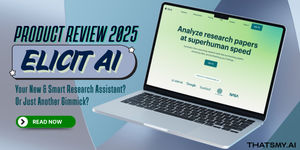The AI trust gap in workplaces is a growing concern, with employees skeptical about the responsible use of AI. A Workday survey highlights the need for human oversight, clear guidelines, and transparent communication. Addressing these issues through comprehensive AI governance can help bridge the trust gap and ensure AI technologies benefit both leaders and employees.

Artificial Intelligence (AI) has immense potential to transform workplaces, offering efficiencies and innovations previously unimaginable.
However, a recent global study by Workday reveals a significant trust gap between business leaders and employees regarding AI adoption. This gap threatens to hinder the effective deployment and benefits of AI technologies.
According to the Workday survey, 62% of business leaders are open to adopting AI, but this figure drops to 52% among employees.
The main concern is the responsible development and deployment of AI. Employees are particularly skeptical, with only 55% believing their organizations will ensure AI is used responsibly.
Skepticism Among Employees: Nearly 23% of employees do not trust that their organizations prioritize employee interests when implementing AI. This skepticism is shared by 21% of business leaders.
Need for Human Oversight: Both leaders (70%) and employees emphasize the importance of human intervention in AI processes. However, 42% of employees feel their organizations lack clarity on which AI systems should include human oversight.
Lack of Guidelines and Regulation: Three out of four employees state their organizations do not collaborate on AI regulation, and four out of five indicate a lack of internal guidelines on responsible AI use.
Organizations must adopt comprehensive AI governance frameworks to build trust. This involves clear policies, transparent communication, and inclusive decision-making processes. Effective AI governance should balance innovation with ethical considerations, ensuring AI systems are designed for human oversight and intervention.
McKinsey's research supports these findings, highlighting that as AI technologies like generative AI (gen AI) scale, organizations face challenges related to accuracy, data privacy, and intellectual property.
Businesses that address these issues by implementing robust governance and risk mitigation strategies can better harness AI's potential while maintaining trust within their workforce.
Bridging the AI trust gap requires a concerted effort from both business leaders and employees. By prioritizing ethical AI development, transparent communication, and inclusive governance, organizations can foster a more trusting environment that fully leverages the benefits of AI technologies.
Sign up to gain AI-driven insights and tools that set you apart from the crowd. Become the leader you’re meant to be.
Start My AI Journey
ThatsMyAI
20 March 2025

ThatsMyAI
7 March 2025